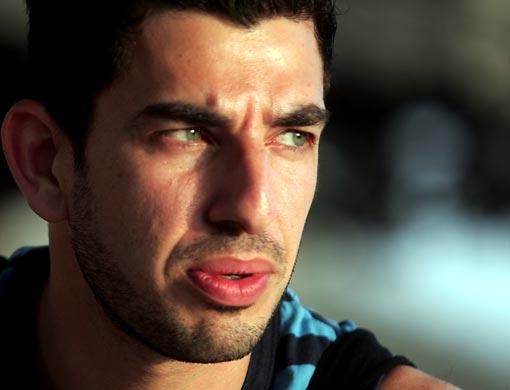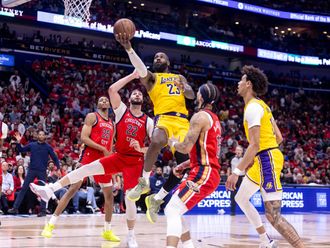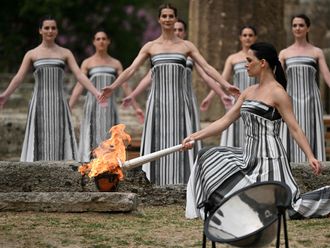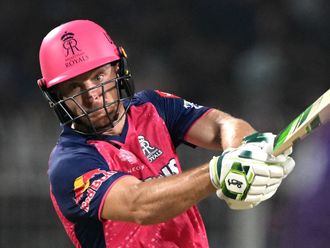Dubai: Professional sports clubs in Dubai have been told to prepare for a new, country-wide dope-testing policy which will see their athletes required to submit to regular dope tests.
A private technology company, Dubiotech, is working with government authorities to bring the UAE in line with the most advanced dope-testing policies in the world and will stand the country in good stead when applying to host major international sporting events.
The UAE's football clubs are expected to be the first to be affected by the changes.
Clubs, federations and athletes who fail to comply with the regulations could face fines, bans and budget cuts.
Ihsan Al Marzouqi, Dubiotech's business development director, is spearheading the project which will more than fulfil a commitment the UAE made last year when it signed the Copenhagen Declaration on Anti-doping in Sport.
Major change
"All countries from the beginning of next year should have national doping policies in place," said Al Marzouqi. "Before this, only advanced countries had national doping control and the others were just doing it if they took part in an international competition or when they hosted something.
"Now everything will change and as of next year all countries, poor or rich, have to have a doping policy in place and it has to be enforceable too."
Dubiotech owns the project which is supported by the Ministry of Health, Dubai Health Authority, Dubai Authority for Youth and Social Welfare and the UAE National Olympic Committee.
The project, given the acronym GAME (Gulf Anti-doping and Monitoring Enterprise), will be based in a new-built Dh 30 million laboratory which is to be developed off the Al Khail Road in Dubai and conveniently situated near to Dubai Sports City.
It will be part of a larger Dh300million technology development and as well as analysing samples from the UAE and larger Middle East region, will also conduct ground-breaking research into tough-to-detect performance enhancers such as gene doping.
"We are developing a foundation for research and innovative scientific and medical projects that are either missing in the region or are not up to the standard that we would wish them to be," explained Al Marzouqi.
"We don't need to have our own lab, we could send our samples abroad but why do that when we could set up something ourselves?
"There are no such labs in the Gulf and all countries are subject to the same regulations so we are expecting a huge demand for our lab from other countries."
Al Marzouqi said clubs and federations had been warned to budget for the new rules.
WADA accreditation
Dubiotech is expecting GAME to be given WADA (World Anti-doping Agency) accreditation within three years and will be enlisting the world body's help in training doping control officers.
Al Marzouqi is also in talks with labs in Greece and Kings College in London for guidance.
WADA requires that labs receive a minimum of 1,500 samples per year and Al Marzouqi says Dubiotech's government stakeholders have made a commitment to deliver that number.
"We will start with professional athletes in premier and second divisions, like football, and then we will expand into individual sports and then into the semi-professional leagues," said Al Marzouqi.
"We are on track to start analysing our first samples by the end of the year."
More in next issue of Sports Extra on Friday













